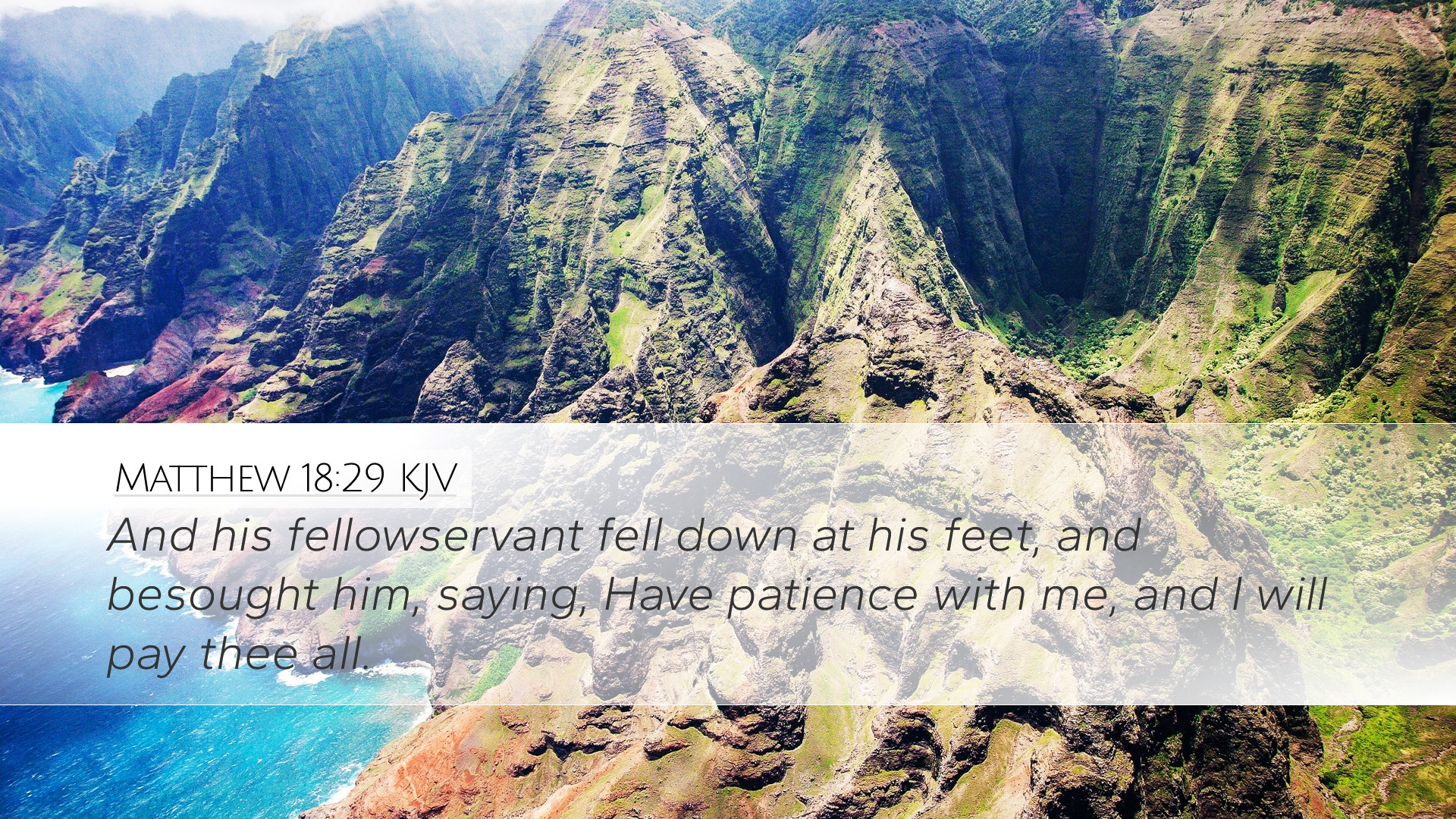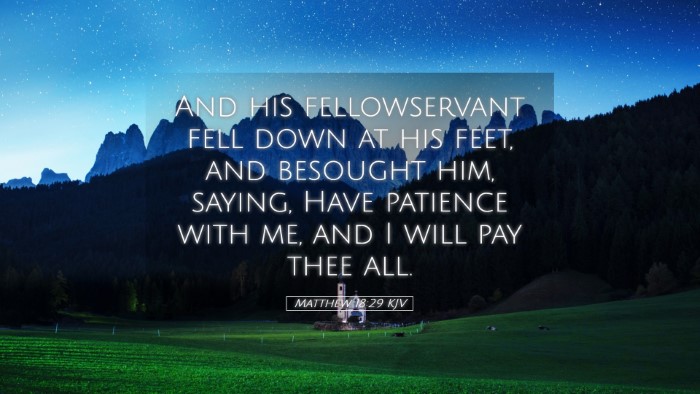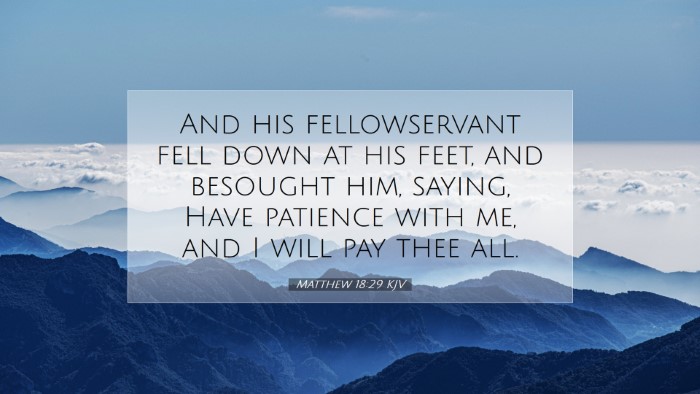Commentary on Matthew 18:29
Text of the Verse: "And his fellowservant fell down at his feet, and besought him, saying, Have patience with me, and I will pay thee all."
Introduction
This verse is part of the larger parable of the unforgiving servant. It serves as a critical illustration of forgiveness and mercy, revealing the depth of our obligations to forgive others in light of the forgiveness we have received from God. Reflecting on Matthew 18:29 enriches our understanding of grace, the condition of the human heart, and the expectations of God for His people.
Exegesis and Interpretation
Contextual Analysis: Matthew 18:29 occurs after the master forgives an enormous debt of one servant, highlighting the juxtaposition of this gracious act against the servant’s refusal to forgive a fellow servant a much smaller debt. Albert Barnes notes that the request for patience reflects the often weak and broken nature of human relationships, which require ongoing interactions of grace and understanding.
The Cry for Patience: The phrase "Have patience with me" is significant. Matthew Henry reflects that it illustrates a desperate plea, exposing the servant's vulnerability and acknowledgment of his inability to meet the debt. This request can be seen as a microcosm of the broader human condition—we are often unable to fulfill our obligations, whether to God or man, and must therefore appeal for mercy.
Dynamics of Forgiveness: Clarke emphasizes that in this passage, the fellow servant’s plea symbolizes all of humanity's rejected pleas for forgiveness. The contrast in the scale of debts reflects our relationship with God, where our sins against Him are monumental, yet we often find it difficult to extend the same grace freely to those who wrong us in minor ways.
Theological Insights
-
The Nature of Forgiveness: At its core, this verse invites readers to understand forgiveness not merely as an act of goodwill but as a spiritual obligation modeled after God’s own forgiveness. It challenges believers to reflect deeply on the grace given to them, as posited by Henry, who notes that a true understanding of divine forgiveness naturally compels us to share that graciousness with others.
-
Human Responsibility: The urgency in the fellow servant's desperate plea should resonate with each believer’s responsibility to exhibit mercy. Barnes points out that the expectation laid upon servants to forgive is not only ethical but indicative of their nascent identity as followers of Christ. This verse raises the question: how do we embody the grace we have received in our daily interactions?
-
Patience and Mercy: The request for patience underscores the process inherent in forgiveness, as suggested by Clarke. It is not an instantaneous act but a journey that requires time, understanding, and compassion. This servant's failure to grant patience reflects a perilous spiritual state—the refusal to recognize the depth of one's own need for mercy may lead to dire consequences.
Practical Applications
1. Reflect on Divine Forgiveness: Pastors and theologians are encouraged to lead congregations in examining their heart attitude toward forgiveness. A deep understanding of the mercies of God can ignite a transformative response in the church community, instilling a culture of grace.
2. Teach and Practice Spiritual Patience: Within a pastoral context, the call to 'have patience' should include teaching that forgiveness may take time. Encouraging individuals to navigate their feelings and the process of forgiveness is imperative for genuine reconciliation.
3. Create Environments of Grace: In educational settings, whether in seminaries or Bible study groups, fostering discussions that afford people the opportunity to share their struggles with forgiveness can be cathartic. Providing a safe space for expression aligns with the deeper theological insights suggested in this passage.
4. Call to Action: Ultimately, understanding Matthew 18:29 showcases the heart of the Gospel. As we reflect on this verse, we should ask ourselves: Who are we presently withholding forgiveness from? What debts are we calculatedly keeping track of? It beckons believers to champion the cause of mercy and ensure that their lives are testimonies of God's boundless grace.
Conclusion
Matthew 18:29 encapsulates profound truths about the nature of forgiveness, human frailty, and divine grace. The dual themes of patience and merciful response beckon all believers—whether in the role of pastor, student, or scholar—to embody the principles taught by Christ. Reflecting on this passage cultivates a heart aligned with the Gospel’s demands, urging followers of Christ to perpetuate a cycle of mercy that mirrors the unmerited grace they themselves have received.


